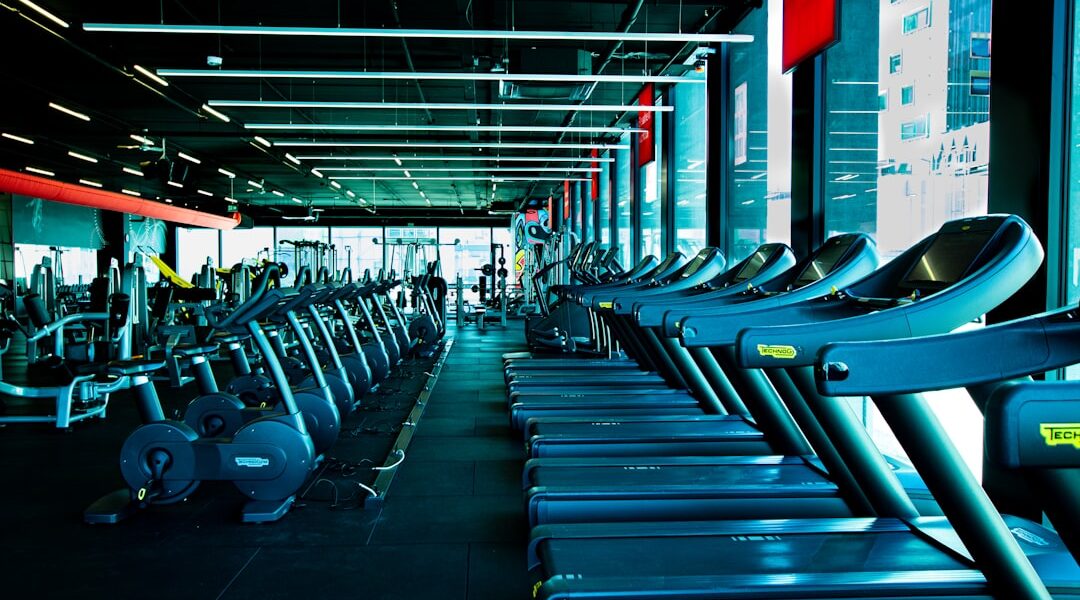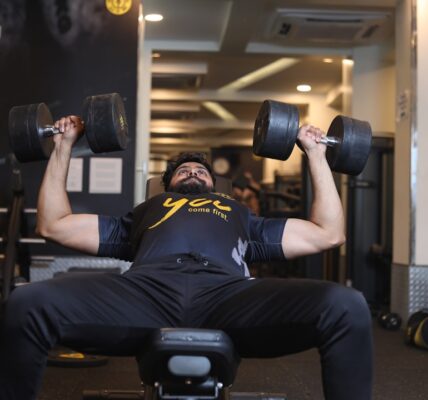Fitness is an essential component of a healthy lifestyle. It encompasses not only physical health but also mental and emotional well-being. Engaging in regular physical activity can help improve cardiovascular health, increase muscle strength, and enhance flexibility.
Additionally, it can also boost mood, reduce stress, and improve overall quality of life. Fitness is not just about looking good; it’s about feeling good and functioning at your best. It is crucial for individuals of all ages to prioritize fitness in order to maintain a high quality of life and reduce the risk of chronic diseases such as heart disease, diabetes, and obesity.
By understanding the importance of fitness, individuals can make informed decisions about their health and take proactive steps to improve their overall well-being. Furthermore, fitness plays a significant role in preventing and managing various health conditions. Regular physical activity can help lower blood pressure, improve cholesterol levels, and reduce the risk of developing certain types of cancer.
It also plays a crucial role in maintaining a healthy weight and preventing obesity, which is a major risk factor for many chronic diseases. In addition to the physical benefits, fitness can also have a positive impact on mental health. Exercise has been shown to reduce symptoms of anxiety and depression, improve cognitive function, and enhance overall mood.
By understanding the importance of fitness, individuals can make a commitment to prioritize their health and well-being, leading to a happier and healthier life.
Key Takeaways
- Regular exercise is important for overall health and wellness
- Benefits of regular exercise include improved mood, increased energy, and better sleep
- Finding the right fitness routine for you is essential for long-term success
- Overcoming barriers to fitness, such as lack of time or motivation, is crucial for maintaining a consistent routine
- Incorporating proper nutrition into your fitness journey is key for achieving optimal results and overall health
The Benefits of Regular Exercise
Cardiovascular Health Benefits
Engaging in activities such as running, swimming, or cycling can help strengthen the heart and improve circulation, reducing the risk of heart disease and stroke. Additionally, regular exercise can also help build and maintain muscle mass, improve bone density, and enhance overall physical strength and endurance.
Mental Health Benefits
Physical activity stimulates the production of endorphins, which are chemicals in the brain that act as natural mood lifters. This can help reduce feelings of stress, anxiety, and depression, leading to improved overall mental well-being. Furthermore, regular exercise can also improve cognitive function and reduce the risk of developing conditions such as dementia and Alzheimer’s disease.
Additional Benefits
By incorporating regular exercise into your routine, you can experience improved sleep quality, increased energy levels, and a greater sense of overall well-being.
Finding the Right Fitness Routine for You

Finding the right fitness routine for you is essential for long-term success and enjoyment. There are countless options available when it comes to physical activity, so it’s important to explore different options and find something that you genuinely enjoy. Whether it’s running, swimming, dancing, or practicing yoga, there is a form of exercise out there for everyone.
It’s important to consider your personal preferences, fitness goals, and any physical limitations when choosing a fitness routine. By finding an activity that you enjoy, you are more likely to stick with it and make it a regular part of your lifestyle. In addition to finding an activity that you enjoy, it’s also important to consider your fitness goals.
If your goal is to improve cardiovascular health, activities such as running or cycling may be more suitable. If you’re looking to build strength and muscle mass, weightlifting or bodyweight exercises may be a better fit. It’s important to tailor your fitness routine to align with your specific goals in order to maximize the benefits and achieve the results you desire.
Lastly, it’s important to listen to your body and be mindful of any physical limitations or injuries. Consulting with a fitness professional or healthcare provider can help you find a routine that is safe and effective for your individual needs.
Overcoming Barriers to Fitness
| Barriers | Impact | Solutions |
|---|---|---|
| Lack of time | Difficulty in finding time to exercise | Plan workouts in advance and prioritize fitness |
| Lack of motivation | Struggle to stay committed to a fitness routine | Set achievable goals and find a workout buddy |
| Financial constraints | Unable to afford gym memberships or fitness classes | Explore free or low-cost exercise options, such as outdoor activities or home workouts |
| Physical limitations | Health issues or injuries that hinder physical activity | Consult with a healthcare professional and find suitable exercises |
There are many barriers that can prevent individuals from engaging in regular physical activity. From lack of time to motivation issues, overcoming these barriers is essential for maintaining a consistent fitness routine. One common barrier to fitness is lack of time.
With busy work schedules and family commitments, finding time for exercise can be challenging. However, prioritizing physical activity and scheduling it into your day can help overcome this barrier. Whether it’s waking up early for a morning workout or squeezing in a lunchtime walk, finding pockets of time for exercise is crucial for long-term success.
Another common barrier to fitness is lack of motivation. It’s normal to experience periods of low motivation, but finding ways to stay inspired and committed to your fitness goals is essential. Setting specific, achievable goals can help keep you motivated and focused on your progress.
Additionally, finding a workout buddy or joining a fitness class can provide accountability and support, making it easier to stay on track with your routine. By identifying and addressing these barriers, individuals can overcome obstacles that may be preventing them from engaging in regular physical activity.
Incorporating Nutrition into Your Fitness Journey
Nutrition plays a crucial role in supporting your fitness journey and overall well-being. Fueling your body with the right nutrients can help improve performance, enhance recovery, and support overall health. It’s important to focus on consuming a balanced diet that includes a variety of fruits, vegetables, lean proteins, whole grains, and healthy fats.
These foods provide essential nutrients that support energy levels, muscle recovery, and overall physical health. In addition to focusing on nutrient-dense foods, it’s also important to stay hydrated by drinking an adequate amount of water throughout the day. Proper hydration is essential for supporting physical performance and overall well-being.
It’s also important to consider timing your meals and snacks around your workouts to optimize energy levels and support recovery. By incorporating nutrition into your fitness journey, you can maximize the benefits of your physical activity and support your overall health and well-being.
Setting Realistic Fitness Goals

Why Realistic Goals Matter
Setting realistic fitness goals is crucial for achieving long-term success and staying motivated. Whether you aim to run a marathon, lose weight, or improve strength, it’s essential to set specific, achievable goals that align with your abilities and lifestyle. Unrealistic goals can lead to frustration and disappointment, while achievable goals provide motivation and a sense of accomplishment as you progress on your fitness journey.
Short-Term and Long-Term Objectives
When setting fitness goals, it’s vital to consider both short-term and long-term objectives. Short-term goals help keep you motivated and focused on making progress in the present moment, while long-term goals provide direction and purpose for your overall fitness journey.
Tracking Progress and Staying Accountable
To stay on track, it’s essential to monitor your progress along the way. Keeping a workout journal or using fitness tracking apps can help you stay accountable and track your achievements as you work towards your goals. By setting realistic fitness goals and tracking your progress, you can stay motivated and committed to your physical activity routine.
Maintaining a Healthy Lifestyle for Long-Term Wellness
Maintaining a healthy lifestyle is essential for long-term wellness and overall well-being. In addition to regular exercise and proper nutrition, it’s important to prioritize other aspects of health such as sleep, stress management, and self-care. Getting an adequate amount of sleep each night is crucial for supporting physical recovery and overall health.
It’s also important to find healthy ways to manage stress such as meditation, yoga, or spending time in nature. Incorporating self-care practices into your routine such as massage therapy or relaxation techniques can also support overall well-being. Additionally, it’s important to prioritize preventive healthcare by scheduling regular check-ups with your healthcare provider and staying up-to-date on recommended screenings and vaccinations.
By maintaining a healthy lifestyle that encompasses all aspects of well-being, individuals can support their long-term wellness and enjoy a high quality of life for years to come. In conclusion, understanding the importance of fitness is crucial for making informed decisions about your health and well-being. Regular exercise offers numerous benefits for both the body and mind, from improving cardiovascular health to boosting mental well-being.
Finding the right fitness routine for you involves considering personal preferences, fitness goals, and any physical limitations in order to make physical activity an enjoyable part of your lifestyle. Overcoming barriers to fitness such as lack of time or motivation is essential for maintaining a consistent routine. Incorporating nutrition into your fitness journey can support performance, recovery, and overall health.
Setting realistic fitness goals provides direction and motivation for your fitness journey while maintaining a healthy lifestyle supports long-term wellness and overall well-being. By prioritizing fitness as part of a healthy lifestyle, individuals can enjoy improved quality of life and reduced risk of chronic diseases for years to come.
If you’re looking to take your fitness routine to the next level, you might want to check out this article on The Muse Camp’s website “5 Essential Tips for Building Muscle Mass”. This article provides valuable insights and strategies for anyone looking to increase their muscle mass and improve their overall fitness. Whether you’re a beginner or a seasoned gym-goer, these tips can help you achieve your fitness goals.
FAQs
What is Fitness U?
Fitness U is a comprehensive fitness program designed to help individuals achieve their health and wellness goals through a combination of exercise, nutrition, and lifestyle changes.
What does Fitness U offer?
Fitness U offers a variety of fitness classes, personalized training programs, nutritional guidance, and lifestyle coaching to help individuals improve their overall health and fitness levels.
Who can benefit from Fitness U?
Fitness U is suitable for individuals of all fitness levels, from beginners to advanced athletes. The program can be tailored to meet the specific needs and goals of each individual.
How does Fitness U work?
Fitness U works by providing a structured and holistic approach to fitness, including exercise routines, nutritional guidance, and lifestyle coaching. Participants are guided through a personalized program to help them achieve their fitness goals.
Is Fitness U suitable for weight loss?
Yes, Fitness U can be an effective program for individuals looking to lose weight. The program includes exercise routines and nutritional guidance to support weight loss goals.
Can I do Fitness U at home?
Yes, Fitness U offers online programs and resources that can be accessed and completed from the comfort of your own home. This makes it convenient for individuals with busy schedules or those who prefer to work out at home.




